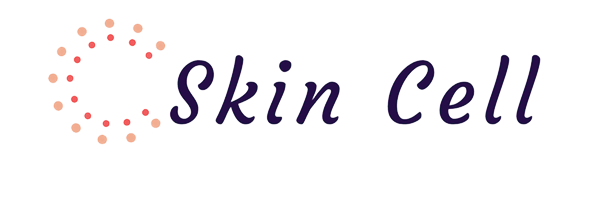Does Accutane Help Fungal Acne?
Wondering if Accutane is the answer to your fungal acne troubles?
This powerful acne treatment has a reputation for transforming skin, but when it comes to the peculiarities of fungal acne, the waters get murkier.
Fungal acne, caused by yeast overgrowth rather than the usual acne culprits, requires a different battle strategy. As we dissect the role Accutane might play in this scenario, it’s crucial to arm yourself with all the facts.
Well, we’ll be going over:
- What exactly sets fungal acne apart from its more common counterparts?
- How does Accutane work, and what makes it a heavyweight in the acne treatment arena?
- Can Accutane effectively target the root cause of fungal acne, or are there better-suited alternatives?
Let’s dive in.

What is fungal acne?
Fungal acne, technically known as pityrosporum folliculitis or malassezia folliculitis, might sound alarming but it’s not your typical acne. Unlike traditional acne, which is caused by bacteria, fungal acne is a result of an overgrowth of yeast (a type of fungus) in the hair follicles. It usually presents as small, uniform bumps on the skin which can be itchy and may look similar to bacterial acne at first glance.
This condition thrives in warm, moist environments, making sweaty skin a common culprit. People often mistake it for bacterial acne due to its appearance, but the usual acne treatments won’t work here. It’s essential to identify the condition correctly since treatment for fungal acne is quite different from the more common acne remedies. Understanding the nature of this unique skin condition is the first step towards addressing it effectively.
Understanding Accutane
Before diving into whether Accutane is your go-to for fungal acne, it’s crucial to grasp what Accutane actually is. At its core, Accutane, medically known as Isotretinoin, stands out as a powerful drug primarily used to treat severe cases of acne, particularly cystic acne that hasn’t responded to other treatments. It’s a vitamin A derivative that significantly decreases the amount of oil released by oil glands in your skin, helping your skin renew itself more quickly.
Accutane’s effectiveness in combating severe acne is well-documented, with many patients experiencing long-term remission after completing their course. This treatment, however, isn’t without its set of challenges. The drug is known for its potent side effects, including dry skin and lips, sensitivity to the sun, and more severe risks such as potential birth defects if taken during pregnancy. Consequently, its use is tightly controlled, with patients undergoing monthly evaluations to continue their treatment.
Given these factors, you might wonder how Accutane fits into the treatment plan for fungal acne, a condition fundamentally different from the bacterial acne that Accutane famously combats. Understanding this distinction is key to determining the best course of action for your unique skin condition.
The efficacy of Accutane for fungal acne
When dealing with the frustration of fungal acne, you might wonder if Accutane could be the silver bullet. Accutane, primarily designed for severe bacterial acne, has made waves for its effectiveness but its role in treating fungal acne is less straightforward. The key difference lies in the cause: fungal acne stems from yeast overgrowth, not bacteria.
Studies specifically focusing on Accutane for fungal acne are scarce. However, anecdotal evidence suggests that while Accutane might not directly combat the yeast causing fungal acne, it can reduce the oil production in your skin. Since yeast thrives in oily environments, less oil can mean less yeast growth, indirectly affecting the severity of fungal acne.
It’s important to approach Accutane with caution due to its potential side effects. Regular consultation with a dermatologist is essential to monitor your health and adjust your treatment plan as needed. Before considering Accutane for fungal acne, ensure a proper diagnosis has been made, as this determines the most effective treatment approach.
Side effects of Accutane
When considering any medication, being aware of potential side effects is crucial. Accutane, known for its effectiveness in treating severe acne, comes with its share of potential adverse effects that you need to be aware of.
Dryness is perhaps the most common, affecting the skin, lips, and eyes. You might find yourself reaching for moisturizer and lip balm more frequently than before. In some cases, joint pain and fatigue can also occur, making daily activities uncomfortable.
More seriously, Accutane is associated with mood changes and increased sensitivity to sunlight. Being vigilant about your mental health and protecting your skin from UV rays becomes even more important while on this medication.
It’s also worth noting that Accutane has strict regulations for use due to the risk of birth defects if used during pregnancy. Therefore, rigorous birth control measures are necessary for sexually active women of childbearing age.
The decision to start Accutane should be made after a thorough discussion with your dermatologist, weighing the benefits against these potential side effects.
Alternative treatments for fungal acne
When considering options beyond Accutane for fungal acne, it’s essential to explore treatments specifically targeting the yeast overgrowth underlying this condition. Antifungal medications play a crucial role in managing fungal acne effectively. Topical antifungals like clotrimazole and ketoconazole are commonly prescribed and can be directly applied to affected areas, targeting the yeast at its source.
An integral part of treatment involves over-the-counter dandruff shampoos containing active ingredients such as pyrithione zinc or selenium sulfide. You might find it odd to use shampoo on your face, but applying it as a mask to the affected area can significantly reduce yeast overgrowth.
Lifestyle changes and skincare adjustments are equally important. Opting for non-comedogenic products that don’t contribute to further clogging of hair follicles can help prevent exacerbations. Additionally, maintaining a routine that minimizes excessive sweat and moisture can thwart the humid environment yeast thrives in.
While exploring these options, always consult with your dermatologist to tailor the treatment plan to your specific condition.
Conclusion
Accutane might not be your go-to solution for battling fungal acne. Understanding the unique nature of this condition is key to choosing the right treatment. With a myriad of alternatives like topical antifungals and lifestyle adjustments at your disposal, you’re not short on options.
Remember, a tailored approach with guidance from a dermatologist is crucial. So before you consider Accutane, make sure you’re addressing the root cause of your skin woes effectively. It’s about finding what works best for your skin’s specific needs.





